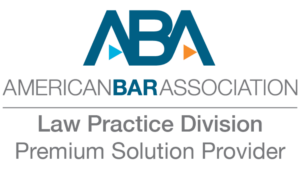The Transformative Future of AI in Marketing
Artificial intelligence (AI) is becoming more prevalent. Once the exclusive domain of theory-focused computer scientists, it is now an integral part of the healthcare, manufacturing, security, financial, and marketing industries.
This has given rise to ethical concerns about AI’s uses and limitations. For example, artificial intelligence, no matter how rational it might seem, is programmed by humans and can inherit its programmers’ biases. The problem then becomes that a small bias can grow exponentially when ingrained in an AI system. Issues like racism, sexism, or ageism can grow unchecked because the machine has no capacity for making ethical decisions.
For businesses, artificial intelligence may supplement other tools to increase sales and make operations more efficient. For example, many repetitive and time-consuming business functions, such as lead conversion and generation or asset management, frequently get streamlined by AI. This article will take a closer look at how AI could enhance marketing operations in the future.
Asset Suggestions
One of the most important aspects of a successful marketing campaign is identifying the right assets to use. For example, a marketing team has to determine what would do better in a specific campaign in order to appeal to the right audience or increase the qualification of leads upfront. Marketers need to weigh factors such as the season, the target market demographics, the competitors’ campaigns, and the type of media being leveraged.
Artificial intelligence tools can make it possible to generate ideas in these areas faster than manual analysis. A machine can analyze data more quickly than the most-experienced market researcher. AI can also analyze campaigns and offer insights into the performance of currently-used assets. Marketers can then adjust and improve as they go rather than waiting for the entire campaign to play out to define shortcomings.
AI can increase the return on marketing investments with this rapid analysis and ability to produce more-focused information. Algorithms may not replace human marketers but rather provide insights to improve the creative and decision-making aspects of the job.
Find-and-Replace Recognition
The larger the asset collection, the greater the task for marketing teams to track every piece of content and update it. These tasks are necessary, but they can take time or resources away from other work.
Algorithm-powered software excels at repetitive tasks like these. As AI gets better at understanding various design file types, such as Photoshop files, it will be able to automatically change a company’s entire asset collection to new specifications. For example, if a company changes its logo, AI tools will have the ability to change all the old logos into the new ones automatically.
Image Personalization
One of the more challenging arenas for AI development has been image recognition. This issue is a big one because image data can enhance personalization, which is an integral part of online marketing strategies. AI is making rapid progress in this area by integrating it into already-established personalization algorithms. Instagram’s Explore page, Netflix’s recommendations, and YouTube’s trending videos are all examples of personalization.
With improved image recognition, AI can personalize images to match a person’s preferences based on their viewing history, demographics, and other factors. This ability can assist marketing teams by quickly and effectively personalizing images to suit target audiences.
Natural Language Processing
Natural language processing, or NLP, is a significant area of AI and is behind the rapid growth of virtual voice assistants and voice search.
Natural language processing requires an NLP algorithm taking text data, turning it into structured data, and then processing the structured data. Within NLP, there are two subprocesses. The first is natural language understanding (NLU). This process helps NLP algorithms identify entities (nouns) and intents (verbs) within context. NLU helps an algorithm filter profanity, detect sentiment, and classify content within a piece of text or voice data.
The second subprocess is natural language generation (NLG). Most NLP systems can understand natural language and also generate it. They can come up with prompt, helpful, and contextually relevant responses to queries. However, more complex functions need NLG to process the structured data and convert it into the natural language that the end-user sees.
Not only does it make it possible to personalize marketing content, but it can improve accessibility, opening up the internet to new users, and increasing marketing opportunities for brands.
Recommendation Algorithms
Platforms like Instagram, Netflix, and YouTube already extensively employ personalization algorithms. The most powerful of these are recommendation algorithms. Recommendation algorithms and NLP algorithms often work together to deliver high-quality recommendations to users.
Recommendation algorithms come in different forms. Here are a few of the most widely used:
- Popularity-based recommendation algorithms make recommendations based on what’s currently popular to other users on the system.
- Classification models consider both user data and product features to determine whether a specific user will like a product.
- Content-based recommendation algorithms recommend similar content or products to those that a user has viewed or purchased before.
- Collaborative filtering algorithms recommend products and content based on what similar content is available, as well as what similar users have chosen before.
These approaches to recommendations help deliver products and content that will satisfy a user’s preferences and keep them coming back.
Marketing teams can benefit immensely from recommendation systems, not only as a way to save on marketing costs with hyper-targeted ads, but you can also cultivate a client-centric business model that emphasizes customer experience and helps customers find what they want easily and quickly.
Law firms who need to Find New Clients are facing a big problem.
Potential clients are searching online for an attorney, and it’s increasingly difficult for law firms to stand out in search results.
Here’s how Legal Leads help.
1) We use 20 years of online advertising expertise to make sure potential clients in your region can find your law firm. As they search for an attorney, we route them to you as a Legal Lead.
2) Legal Leads are EXCLUSIVE and delivered in REAL-TIME through the web or LIVE on the phone. This means you can respond to leads right in the moment they reach out for help. It’s the best time to win them as a new client.
You only pay when you receive a lead. You can stop at any time, and you have an excellent customer support team to help you succeed!
CREATE YOUR ACCOUNT at 4legalleads.com/lawyers. It only takes a moment. Then, we’ll be in touch to help you complete your setup so you can start finding new clients!





